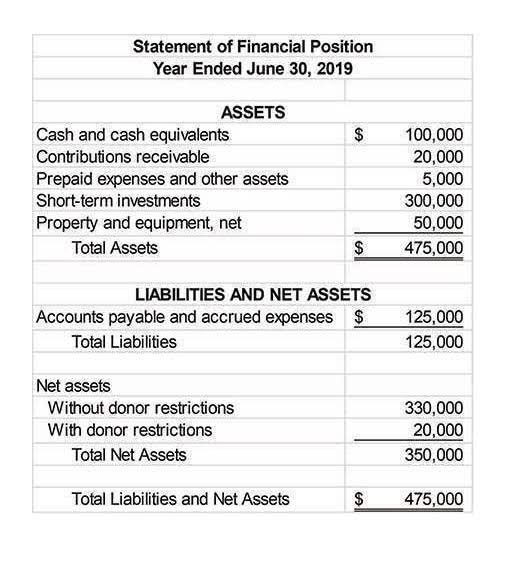
Brewery accounting is the practice of tracking and managing all financial activities related Partnership Accounting to a brewery. This includes recording transactions, creating reports, reconciling accounts, and other tasks necessary for proper management of finances. It is essential for any brewery owner or manager to set up their accounting system properly in order to keep track of their expenses, income and cash flow. A well-managed brewery should have an efficient accounting system that can easily handle day-to-day operations as well as long-term planning.
Accounting Software

A brewery is likely to have a lot of marketing expenses, one of which is somewhat unique to the industry. They usually have accounting a line item for festivals expense, which is a great place to acquaint walk-by customers with the company’s beer offerings. Incidentally, marketing expenses can be anywhere from 20 to 30 percent of the total expenses of the brewery.
An upcoming beer style:

With Xero, if your business week finishes on a Tuesday, you can customize the reports to run from Wednesday to Tuesday. They also automatically compute tax and retirement deductions and provide expert advice to ensure you comply with all applicable rules and regulations. You can efficiently manage your business and employees when and how you choose from your desktop or mobile brewery accounting with their all-in-one Paychex Flex® technology.
- At U-Nique Accounting, we recommend Xero for accounting, Dext Prepare for bookkeeping, Plooto for paying vendors, and Gusto for payroll.
- Then finished goods might be broken down into pack types, such as packaged and kegged.
- With this build-out, the brewery options for everyday use are made more effective and organized for breweries who trust Ollie Ops to manage their brewing operations.
- Join host Chris Farmand as he chats with a guest about the challenges, opportunities, and decisions facing craft practitioners every day across the country.
Brewery Consulting, Accounting, and Financial Strategy
- Investing in a dependable piece of brewery management software should be an essential component of your business.
- Last but not least, we recommend using a brewery management software like Ekos or Beer30, when you’re ready.
- ’ That generated this really good, cohesive feedback loop that allowed us to tailor our system and platform for operating the brewery where everybody was happy with how it worked.
- Similarly, Derek Smith from Small Batch Standard also stresses the importance for breweries to have an accurate breakdown of their revenue, cost of commodities, and labor.
- Simply put, a chart of accounts is a list of all the account names that you have identified and made available for recording transactions in your general ledger (main record).
- And then on the income statement side of things, the main issues are to have separate accounts for every type of revenue and the cost of goods for each type of revenue, so that you can figure out the gross margin for each one.
- According to Derek, an accurate snapshot of your brewery costs is especially critical on the “cost of goods sold” side, because breweries often buy goods and ingredients in bulk.
Like Sage, Xero offers a 30-day trial so you may choose the plan that best meets your brewery’s needs. According to Pearman, the most important investment any small business can make is in reliable bookkeeping. If you’re currently using a brewery software that isn’t Ollie, you’re paying too much. We know this because every brewery that switches to Ollie tells us that they’re saving hundreds, if not thousands of dollars.

AccountingTools
This involves entering data accurately while keeping track which account each transaction belongs to, in order to ensure accuracy throughout reporting periods down the line. Raw materials inventory is broken down into a bunch of accounts, including raw materials for malt, and hops, and chemicals, and packaging materials. Then finished goods might be broken down into pack types, such as packaged and kegged. And then on the income statement side of things, the main issues are to have separate accounts for every type of revenue and the cost of goods for each type of revenue, so that you can figure out the gross margin for each one. This means having separate accounts for things like kegged beer, packaged beer, growlers, and taproom sales.
We believe that a rising tide lifts all boats and through open publication of our thinking, findings, and resources we aim to make a serious and positive dent in the craft universe. You’ll find more real, practical, hard-hitting information here than anywhere else in the industry, and we want you to leverage this “consulting from afar” into breakout success, whether or not you ever work with us. However, there is a lot more to stay on top of when it comes to keeping healthy books. We wrote an entire blog post about our bookkeeping tips for breweries, which you can read here. This is super simple to do with Xero, and not so much with QBO. In fact, if you are even able to do it at all in QBO, it will cost you a lot of money.
Fixed Asset Accounting

If so, it collects a refundable deposit on each one, which it pays back when kegs are returned. This means that the deposits appear on its balance sheet as a liability. If so, the brewery will have to write them off – which doesn’t happen with most fixed assets. But once cash flow is working and you need help tracking your production, look to these solutions. Kept.pro delivers, complete outsourced accounting and bookkeeping teams, or we can augment your existing internal capacity.
- When newcomers first come across SBS and ask, “Where do we start?
- This means those key decisions are instead made based on gut feel, with some after-the-fact course correction thrown in the mix.
- Setting up your own accounting system will help ensure accuracy and reliability when it comes to making important decisions about your business.
- By understanding the breakdown of costs in all areas of the brewery, you can create an actionable plan, seeing where you might be able to cut back on spending or invest more.
- “That’s something that I relied heavily on when we were digitizing the brewery.

Because of this, dependable accounting software is a brewery’s best friend when it comes to controlling cash flows for the business. Here is a list of the accounting and bookkeeping tools both we and Smith recommend using everywhere from your front-of-house point-of-sale system to your back-of-house brewery management platform. The amount of business tasks you need to consider daily is long, including ordering and maintaining a vast inventory of raw ingredients, writing recipes, paying distribution fees and service taxes… The list goes on. Because there is so much possibility for error, operations can easily fall between the cracks. In some cases, the brewery may commit to using a certain percentage of the other party’s brewing capacity, which can involve paying extra fees for the capacity. For a brewery, this means keeping an eye on the sales, inventory, the ingredients you use, and all the costs involved in making, distributing, and selling your beer.


Geef een reactie